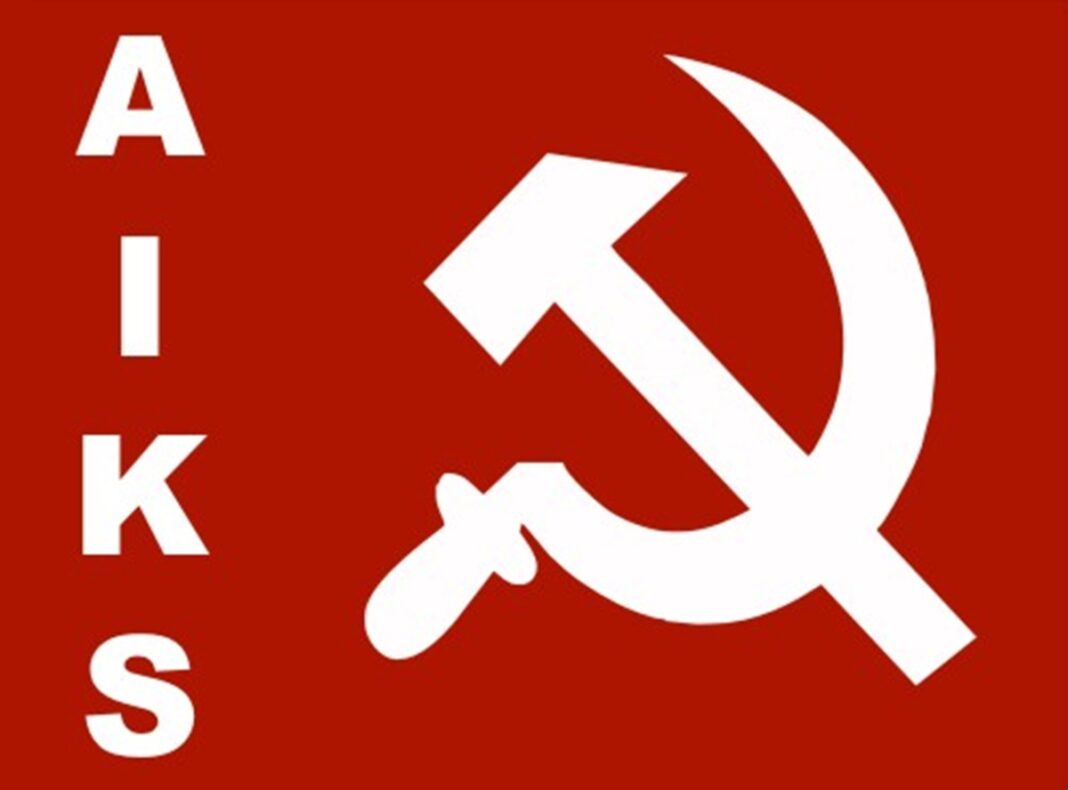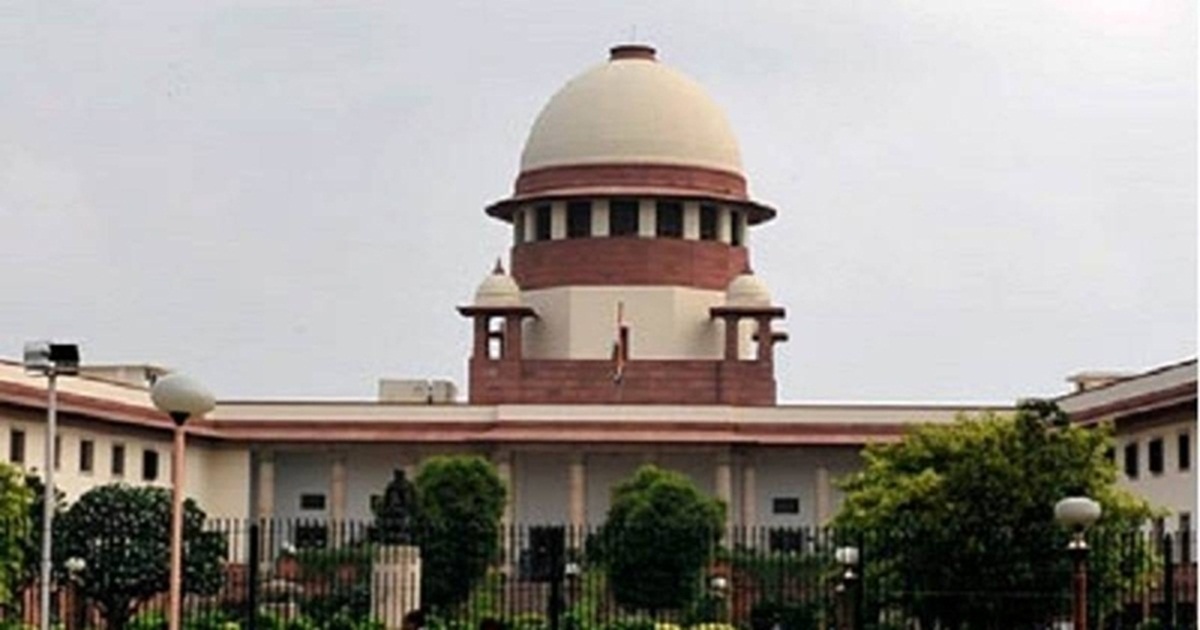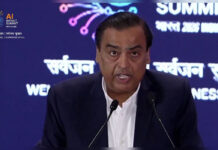New Delhi: In the wake of the recent terrorist attack in Pahalgam that claimed 26 lives, the All India Kisan Sabha (AIKS) has issued a strong appeal for restraint, urging the Union Government to prioritise diplomatic efforts and legal mechanisms to counter terrorism, while cautioning against jingoism and communal polarisation.
AIKS President Ashok Dhawale and General Secretary Vijoo Krishnan, in a joint statement, condemned the terror strike and acknowledged the Indian armed forces’ retaliatory operations targeting terrorist bases across nine locations. However, the organisation expressed concern over the escalation in cross-border hostilities, which it said had disproportionately affected peasants and agricultural workers residing near the India-Pakistan border.
“Wars only benefit ruling classes and their imperialist allies. It is the working people who suffer the most,” the AIKS leaders stated. They called for the Indian government to adopt “forceful diplomatic measures” and to invoke the provisions of the Financial Action Task Force (FATF) to bring Pakistan under pressure to act against terrorist financiers and handlers.
The AIKS also criticised the atmosphere of war-mongering and communal rhetoric being promoted through certain media platforms. They warned that such divisive tactics risked distracting from the pressing issues faced by the public, such as unemployment, inflation, and agrarian distress.
In a sharp rebuke to corporate profiteering, the AIKS condemned Reliance Industries for its attempt to trademark “Operation Sindoor”—a move that was later withdrawn following public outrage. “This reflects an effort to milk a national crisis for corporate gains, even as the masses suffer,” the statement said.
Further, AIKS denounced the alleged clampdown on independent media outlets like The Wire, contrasting it with the impunity enjoyed by channels that, according to the organisation, propagate communal and provocative content.
The farmers’ body also criticised ongoing economic policies of the central government, including the implementation of the four labour codes, proposed changes in agricultural marketing laws, privatisation of electricity, and free trade agreements with Western powers. These, AIKS claimed, would intensify inequality and deepen the crisis for workers and farmers, particularly in times of war.
Reiterating their commitment to peace, Ashok Dhawale and Vijoo Krishnan urged the government to resolve the situation through dialogue and to uphold the interests of India’s working population.








clomiphene generic name where to get cheap clomiphene pill buy cheap clomiphene price where to get cheap clomiphene price order clomiphene prices where to buy clomiphene pill clomiphene one fallopian tube
With thanks. Loads of expertise!
This is the kind of criticism I in fact appreciate.
zithromax 500mg oral – zithromax pills order generic metronidazole
brand semaglutide 14 mg – oral rybelsus 14 mg buy cyproheptadine 4mg pills
cheap motilium 10mg – purchase motilium sale flexeril usa
buy cheap generic propranolol – where to buy methotrexate without a prescription order methotrexate 5mg sale
amoxicillin without prescription – buy amoxicillin online cheap buy combivent pill
azithromycin 500mg canada – buy tinidazole generic generic bystolic
buy clavulanate cheap – https://atbioinfo.com/ buy ampicillin online cheap
buy nexium 40mg generic – https://anexamate.com/ brand nexium
coumadin sale – https://coumamide.com/ buy losartan 25mg generic
prednisone 20mg generic – https://apreplson.com/ order deltasone 10mg pill
medicine erectile dysfunction – non prescription erection pills natural pills for erectile dysfunction
order amoxicillin without prescription – https://combamoxi.com/ buy amoxil online
escitalopram 10mg ca – https://escitapro.com/# cheap lexapro 10mg
cenforce 50mg ca – order cenforce buy cenforce
cialis package insert – cialis dapoxetine australia cialis free trial voucher 2018
purchase cialis online cheap – best place to buy liquid tadalafil cialis milligrams
buy ranitidine 300mg generic – buy ranitidine without a prescription buy ranitidine no prescription
generic viagra 100mg – strongvpls hard sale evolution viagra salesman
With thanks. Loads of expertise! purchase nolvadex generic
More articles like this would pretence of the blogosphere richer. https://buyfastonl.com/azithromycin.html
With thanks. Loads of expertise! https://ursxdol.com/synthroid-available-online/
Thanks on putting this up. It’s evidently done. https://prohnrg.com/product/metoprolol-25-mg-tablets/
More posts like this would add up to the online elbow-room more useful. https://aranitidine.com/fr/acheter-propecia-en-ligne/
This is the amicable of glad I get high on reading. https://ondactone.com/product/domperidone/
Facts blog you procure here.. It’s obdurate to espy strong quality writing like yours these days. I honestly comprehend individuals like you! Withstand mindfulness!!
https://proisotrepl.com/product/tetracycline/
More posts like this would force the blogosphere more useful. http://shiftdelete.10tl.net/member.php?action=profile&uid=200438
buy dapagliflozin generic – forxiga where to buy order dapagliflozin 10mg for sale
buy xenical cheap – on this site buy xenical pill
I think this is among the most significant info for me.
And i’m satisfie reading your article. But want
to statement on some normal things, The website taste is ideal, the articles is actually nice : D.
Just right activity, cheers https://u7bm8.mssg.me/
Thanks on putting this up. It’s understandably done. https://experthax.com/forum/member.php?action=profile&uid=124818
You can protect yourself and your dearest by way of being cautious when buying panacea online. Some druggist’s websites control legally and sell convenience, secretiveness, sell for savings and safeguards for purchasing medicines. buy in TerbinaPharmacy https://terbinafines.com/product/propecia.html propecia
More peace pieces like this would make the web better.
专业构建与管理谷歌站群网络,助力品牌实现全域流量的强势增长。谷歌站群
Tham gia cộng đồng game thủ tại Go88 để trải nghiệm các trò chơi bài, poker phổ biến nhất hiện nay.
Với giao diện mượt mà và ưu đãi hấp dẫn, MM88 là lựa chọn lý tưởng cho các tín đồ giải trí trực tuyến.
Tham gia cộng đồng game thủ tại Go88 để trải nghiệm các trò chơi bài, poker phổ biến nhất hiện nay.
betmgm Maryland betmgm-play betmgm offers